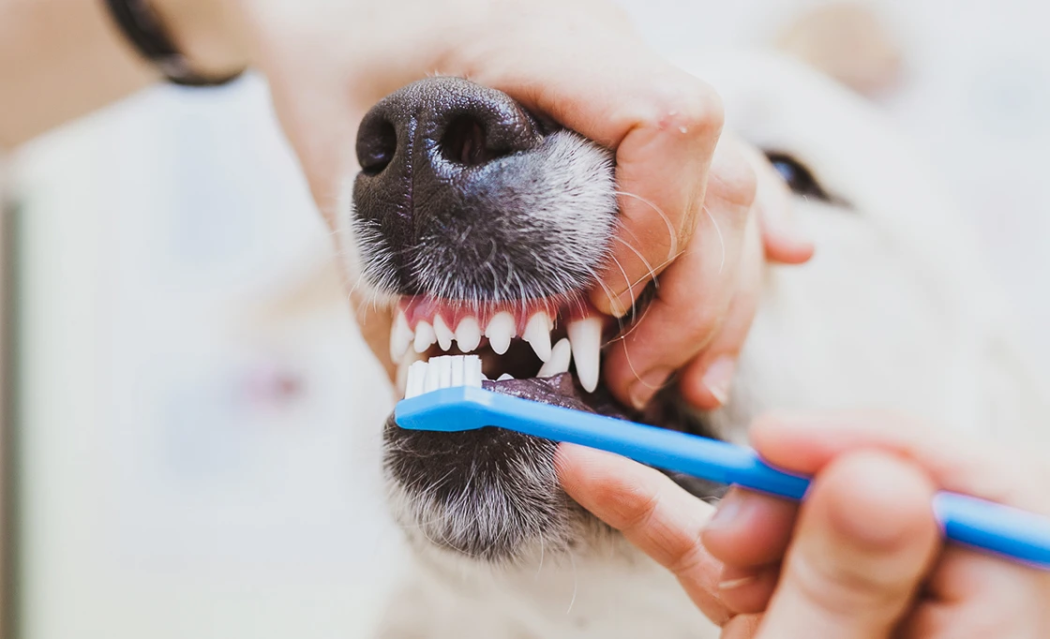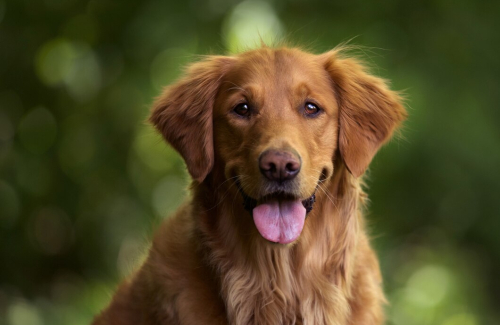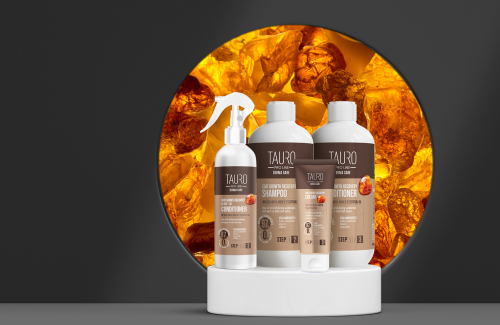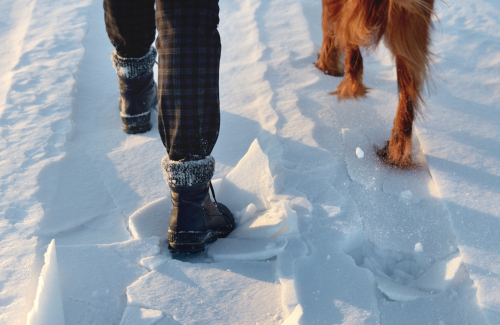How to care for your dog's teeth?
According to veterinarians, dental problems in dogs are becoming more common - about 80% of three-year-old dogs suffer from dental issues.
Why do dogs' teeth need care?
We often hear comments that dogs have survived for thousands of years without toothbrushes and don't need any help. But today, with a much faster pace of life, when pets are fed more easily chewed food, and other reasons lead to the deterioration of the teeth. Properly selected feed and strict care of the dog's teeth will prevent the accumulation of plaque, tartar, and various diseases, and will allow you to quickly notice dental injuries or just beginning dental problems.
How to recognize dental problems?
Try to check your pet's teeth regularly and as often as possible. Problems with the teeth and gums are indicated by: bad breath, redness and swelling of the gums, broken or fallen teeth, and pain (if the dog, who has always allowed his teeth to be examined, suddenly starts to resist, it can be suspected that he is in pain), bleeding. Sometimes pets themselves show that something is wrong - they scratch their noses with their paws, become restless, and stop eating.
In case of improper care of a pet's teeth, first of all, plaque begins to accumulate, which, as it hardens, forms tartar. Tartar is the main cause of gum inflammation (gingivitis). The first and main signs of tartar are bad breath and redness of the gums.
Dog owners often think that dogs have bad breath naturally, but it is usually caused by poor oral hygiene. Without taking any measures, stones begin to form below the gum line, "pockets" are formed, bacteria begin to breed extremely actively, and periodontal diseases develop. In such cases the pet may not only lose its teeth but, if the infection enters the body, develop kidney disease and heart disease.
The right feed and natural treats can help
Properly selected pet food can be an excellent preventive measure against dental problems. Hard pellets of dry food are better than soft food which tends to get stuck between the teeth (such as canned food). Feeding with natural products (RAW or BARF) could also be beneficial - tearing raw whole pieces of meat, so the teeth are properly cared for. It is advised to avoid only products such as "bare" bones (whether raw or cooked). Natural dried treats are perfect for dental care, and when the dog gnaws them, they also clean their teeth.
Ropes, rubber toys, and special products for dental hygiene, which can even be used to apply toothpaste for dogs help strengthen teeth and prevent plaque while the dogs chew on them.
Don't forget to brush your pet's teeth
You should brush your pet's teeth regularly, at least once a week. Accustom your pet to this procedure from an early age. In the first days, it is enough to squeeze a small amount of special toothpaste for dogs on your finger and let the pet lick it off. Later, you can try running your finger over the teeth and gums. The most important thing is to take your time, and let this activity be pleasant for the pet. Later, switch to special brushes. If the dog behaves well, offer some praise, and reward him with a treat. Talk to an anxious pet calmly, let him breathe. The process of getting used to brushing teeth can last from one day to a couple of months, patience may be required.
When brushing teeth, move lightly from top to bottom and back to top again. Start with the front teeth, then "travel" to the molars. Don't forget the gums. The most important thing is gentleness because dogs' gums are extremely sensitive. Avoid opening the muzzle, especially if you are just getting used to brushing your pet's teeth - this can cause panic and resistance. Before and after brushing the teeth, praise and play with the pet.
Never use human toothpaste to clean your pets' teeth - choose a special one for canine teeth. Human toothbrushes are also not suitable, as they are not suitable for a dog's muzzle. Brushes intended for dogs have a slightly smaller head, and you can also purchase special finger brushes, which will help you clean your pet's teeth with ease.
If it is inconvenient to brush the teeth of the pet, consult your veterinarian about other options for choosing the right dental hygiene. This can be brushing the teeth with special toys or treats. Such means are sufficient for daily maintenance, but occasionally the dog may have to be taken to a professional for dental cleaning.
While most people don't give much importance to their pets' dental care, brushing their teeth is just as important as proper nutrition and exercise. Maintaining the good condition of a dog's teeth is one of the owner's responsibilities.


 2024-01-12
2024-01-12




